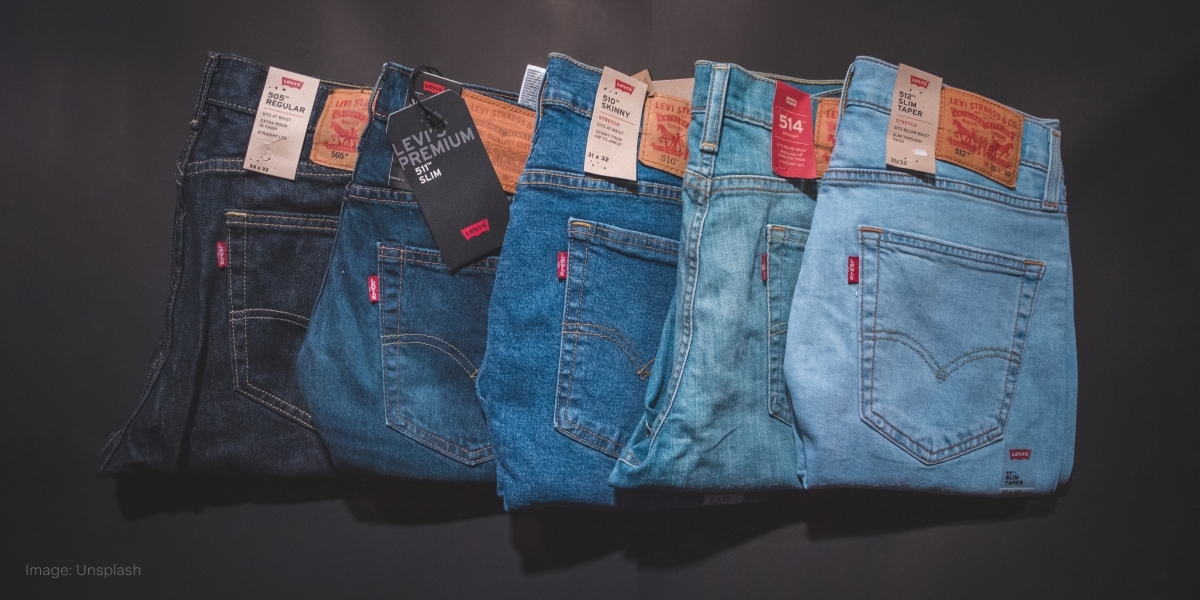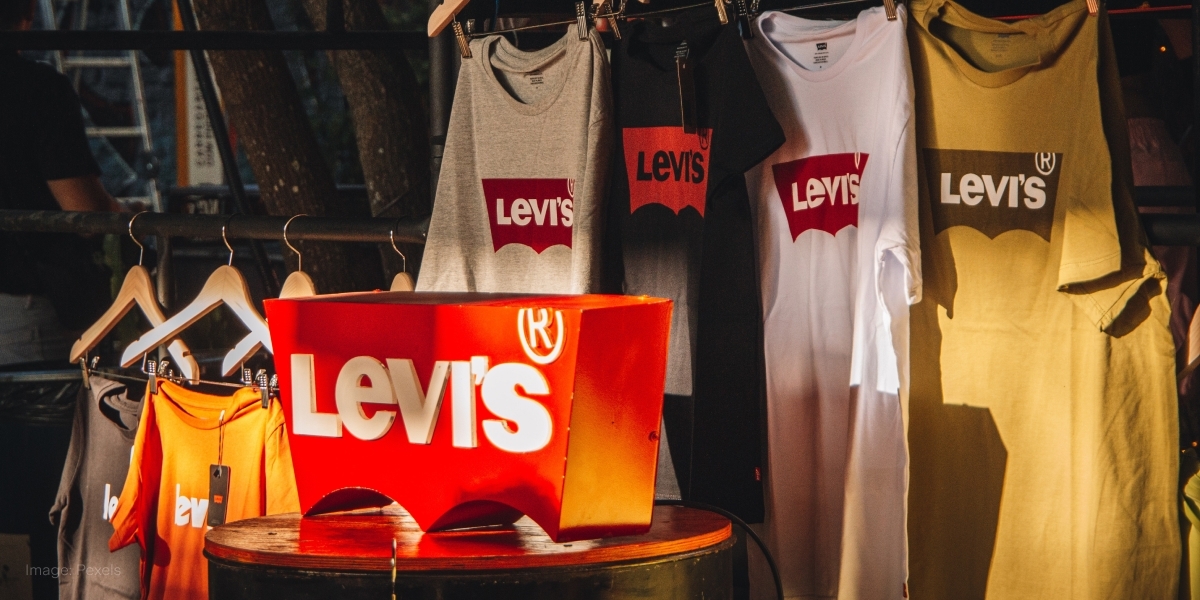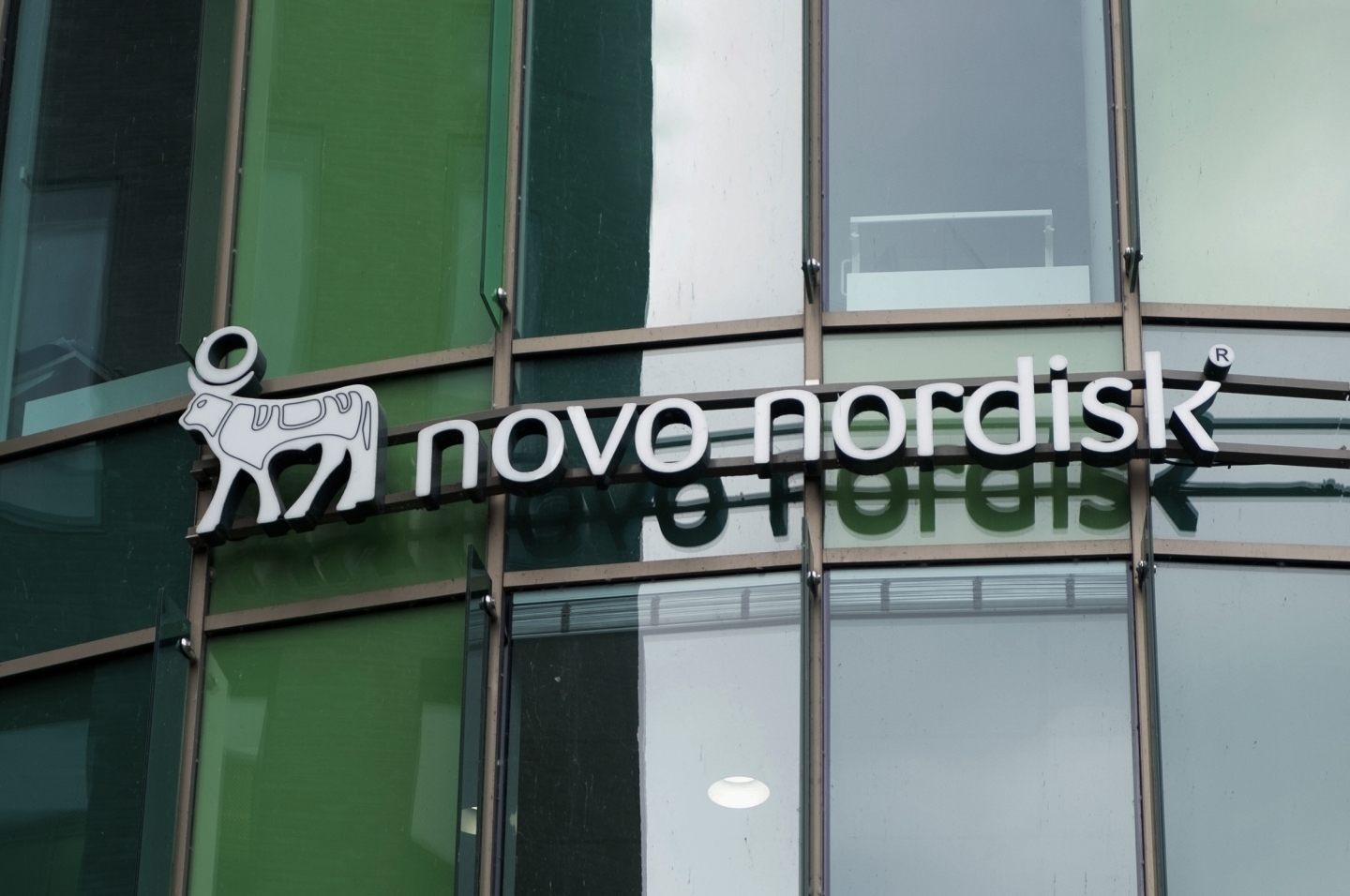
Under the Spotlight Wall St: Levi Strauss & Co. (LEVI)
The creator of the modern denim trousers, Levi jeans have been worn by multiple generations across the planet. Could its business be going out of fashion? Let’s put it Under the Spotlight.

Levi's is more than just a brand; it is an emblem of the American lifestyle, a symbol of authenticity and a pioneer in the fashion industry. Since its inception in 1853, Levi Strauss & Co. ($LEVI) has become synonymous with denim and revolutionised how people dress.
Levi's owes its success to the vision and entrepreneurship of Levi Strauss, who recognised the need for durable workwear during the California Gold Rush starting in the 1860s. Strauss noted that most pants tended to rip around the pockets and crotch, and decided to reinforce these areas. Levi created the first riveted denim pants, a garment that was both comfortable and built to last.
The innovative design, exceptional quality and durability quickly gained popularity among miners and labourers. As the American West expanded, so too did Levi's reach. Soon cowboys, ranchers and railroad workers began embracing Levi's jeans. The iconic Levi's 501 jeans, introduced in the late 19th century, became a staple in the wardrobes of hardworking individuals across the U.S.

Work goes casual
For 70 years, Levi's jeans were primarily worn by America's working class. However, competition emerged in the early 1900s with brands like Lee and Wrangler introducing their own denim products tailored to specific markets. The popularity of denim jeans soared during World War II when American soldiers wore them off-duty, introducing the casual pants to a global audience that was more accustomed to formal attire.
In the 1950s and 1960s, Levi's jeans underwent a significant transformation and were embraced by artists, musicians and cultural icons. They were adopted by the rebellious youth, becoming fashionable for those wanting to challenge the status quo. From Marlon Brando in "The Wild One" to James Dean in "Rebel Without a Cause," Levi's jeans became a symbol of a new, distinctive subculture for young people.

In and out of fashion
Levi's ability to continually reinvent itself and appeal to new generations has contributed to its success. The company first went public in 1971, experiencing rapid growth through the decade. The denim market reached its peak in 1981, with Levi's, Lee and Wrangler dominating over 40% of the market. However, Levi's faced challenges in the 1980s and 1990s as designer jeans from Calvin Klein ($PVH) and Jordache gained popularity.
Cheaper private label brands like Gap ($GPS) and J.C. Penney alongside upscale competitors also ate into its sales. The company's revenue declined, and it took on significant debt to buy back the majority of the company, going private. Under new leadership, Levi's decided to focus on its core businesses, revamped stores and introduced its business casual brand, Dockers, now famous for their khaki pants.
The 1990s saw a recovery in denim sales, with Levi's reaching its peak sales in 1996. However, the company struggled to stay relevant amidst competition from private label brands and upscale competitors. Levi's sales fell from 1997 to 2002, and the company faced challenges related to outsourcing production and closing U.S. plants.

A new look
Levi's reputation as an all-American brand suffered as garment production shifted to countries with lower labour costs. The company resisted outsourcing for as long as possible but eventually closed its last U.S. plant in 2004. By the mid-2000s, Levi's was again burdened with debt, declining sales and a diminishing cultural image. However, in 2011, under the leadership of the new CEO Chip Bergh, Levi's successfully shifted focus to women's jeans. Although men’s sales still account for most of their revenues.
The company emphasised its ‘core’ men's bottoms business and invested in further R&D. Levi's also tapped into fashion trends, such as the resurgence of 1980s and 1990s styles. They engaged in high-profile marketing moves like partnering with the American football team, the San Francisco 49ers. The denim juggernaut would also go public again in 2019, raising US$600m in the process.

Revamped outfit
Since its latest IPO, Levi’s has been the industry’s leader when it comes to return on equity. The measure is currently at 26.44%. Its revenues are greater than most competitors and exceeded the US$6b market for the first time in a quarter century to a total of US$6.3b in FY2022. The classic 501 jean sales grew 30% year-on-year, largely due to a marketing campaign to celebrate its 150th anniversary.
With 1,089 stores worldwide, the company plans to open 80 more in FY2023. Its e-commerce presence is growing strongly with 38% of Levi’s sales coming from its website. The team expects this number to reach 55% in the upcoming years. For FY2023 the clothing brand expects revenue to amount to approximately US$6.3b to US$6.4b. This indicates modest growth as consumers become more cautious in a high-inflation environment.
However, considering the recent drops in consumer prices worldwide, buying a new pair of jeans might not be out of the question for many which could cause Levi’s shares to be all the rage in the latest fashion.
This does not constitute financial advice nor a recommendation to invest in the securities listed. The information presented is intended to be of a factual nature only. Past performance is not a reliable indicator of future performance. As always, do your own research and consider seeking financial, legal and taxation advice before investing.

Megan is a markets analyst at Stake, with 7 years of experience in the world of investing and a Master’s degree in Business and Economics from The University of Sydney Business School. Megan has extensive knowledge of the UK markets, working as an analyst at ARCH Emerging Markets - a UK investment advisory platform focused on private equity. Previously she also worked as an analyst at Australian robo advisor Stockspot, where she researched ASX listed equities and helped construct the company's portfolios.

